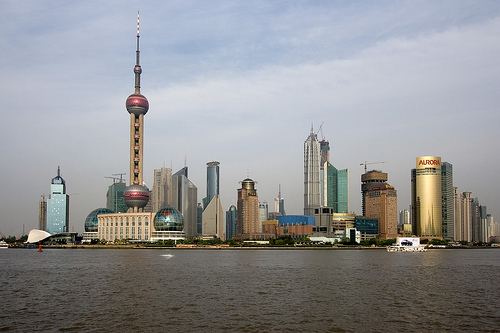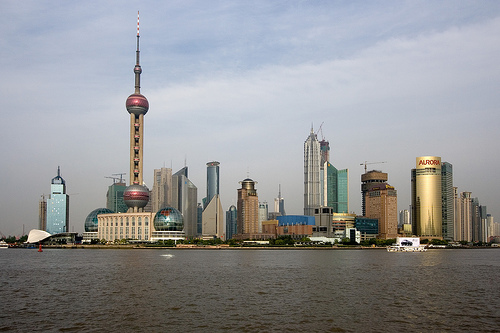 Awareness of environmental issues is highest in China’s biggest cities, like Shanghai.Photo: Keith MarshallChina’s rapid modernization and transformation into a fully fledged industrial nation make the country a little bit like the most enormous science experiment of the 21st century. The shift from a mostly rural population to a predominantly urban one, which took generations to accomplish in the United States, has happened essentially overnight. As in a time-lapse movie, this sped-up process makes certain trends that might be imperceptible at a slower speed instead become impossible to ignore.
Awareness of environmental issues is highest in China’s biggest cities, like Shanghai.Photo: Keith MarshallChina’s rapid modernization and transformation into a fully fledged industrial nation make the country a little bit like the most enormous science experiment of the 21st century. The shift from a mostly rural population to a predominantly urban one, which took generations to accomplish in the United States, has happened essentially overnight. As in a time-lapse movie, this sped-up process makes certain trends that might be imperceptible at a slower speed instead become impossible to ignore.
While it’s easy to see the environmental dark side of urbanization, researchers have just added another dimension to the picture.
According to a recent study published in Environmental Conservation, the rapid urban development that is creating many of China’s environmental problems could also be part of the key to solving them. That’s because cities are kind of like laboratories themselves — places where human behavior is shaped and molded by constant pressures, tensions, and incentives, and where change is accelerated. This study, led by scientists at the Center for Systems Integration and Sustainability (CSIS) at Michigan State University, found that the people who live in large Chinese cities are more environmentally aware — and significantly more likely to act on that awareness — than those in smaller cities and towns.
There’s no question that China’s rapid change has come at a heavy price. Pollution of every sort is rampant. Hundreds of years of cultural heritage have been wiped out in urban renewal projects. Millions of people have been displaced, and entire ecosystems flooded, by massive dams. Water shortages and traffic problems are mounting. And — perhaps most frighteningly in a nation where memories of widespread famine are still just under the surface — the prospect of food insecurity is always lurking in the background, as arable land gets paved over, built up, and degraded.
But the CSIS study suggests that in large cities, people’s awareness and attitudes about those problems is heightened and can be focused into action, especially in the workplace.
From a press release from the National Science Foundation on the findings:
The researchers say companies in big cities likely have resources to promote environmental initiatives, such as education. These companies can organize or provide support for organizing pro-environmental behavior, and encourage — and under many circumstances require — employees to participate in environmental behavior. In addition, people who live in the largest cities are more widely exposed to media reports about the environment than people who live in smaller cities.
The study’s findings dovetail interestingly with physicist Geoffrey West’s theories about the value of cities as incubators for human ingenuity, which have gotten a lot of play recently. West’s research suggests that bigger cities are more efficient when it comes to resource consumption, and also — perhaps more importantly — that they are more effective in fostering human collaboration and innovation. (If you haven’t already read Jonah Lehrer’s terrific piece on West, read it now.)
The types of behavioral change the new Chinese study looks at are on a relatively small scale. But they may offer an insight into how to change the minds of millions — and quickly.



